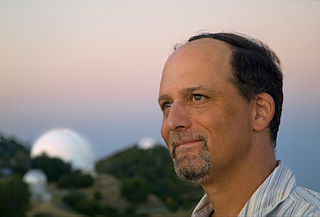A Quote by Shweta Basu Prasad
Mars, the second planet from the sun in our solar system is touted to be the next home for human race in the coming decades if the research and understanding of the planet is cracked by the bigwigs of the science world.
Related Quotes
The future is about wings and wheels and new forms of space transportation, along with our deep-space ambition to set foot on another world in our solar system: Mars. I firmly believe we will establish permanence on that planet. And in reaching for that goal, we can cultivate commercial development of the moon, the asteroid belt, the Red Planet itself and beyond.
There are people that tell you we gotta colonize Mars in the next 50 years if we're to survive as a human race. It's absolute stupidity. All it does is scare people - particularly young, impressionable minds who already think there isn't gonna be a planet in 30 years. Now they're thinking, since there isn't gonna be a planet, "If we don't get to Mars in 30 years, I'm gonna die."
Forests ... are in fact the world's air-conditioning system-the very lungs of the planet-and help to store the largest body of freshwater on the planet ... essential to produce food for our planet's growing population. The rainforests of the world also provide the livelihoods of more than a billion of the poorest people on this Earth... In simple terms, the rainforests, which encircle the world, are our very life-support system-and we are on the verge of switching it off.
This is what the Mars Science Laboratory (MSL) represents. Experimental, explorational science. Learning about Mars as a new world. Discovering new things that will tell us about the history of our solar system, help reveal the secrets of life, and continue blazing the trail that may someday be traveled by the rest of us.
It changes your perspective to be able to look out the window and see the planet. One of the thoughts that I had when I first got up here was, 'We really do live on a planet, and we are in a solar system, and we are flying through space right now.' I mean, this is something that you know, obviously, but to see the planet - it's amazing.
In the next century or two, we humans will have planet-finder telescopes that span our solar system with mirrors strewn from here to Jupiter, giving us enormous angular resolution so we can do the kind of science that a self-respecting advanced civilization ought to be doing. We should someday be imaging the continents on other planets. We can't do that yet, but aliens can do that already, so they know we are here.
I used to be a strong believer that we would eventually colonize the solar system the way it's been done in science fiction many, many times: bases on the moon, Mars colonized, move out to the outer planets, then we go to the next solar system and build a colony there. I don't know now - I'm not as convinced that's the way it's going to pan out.

































